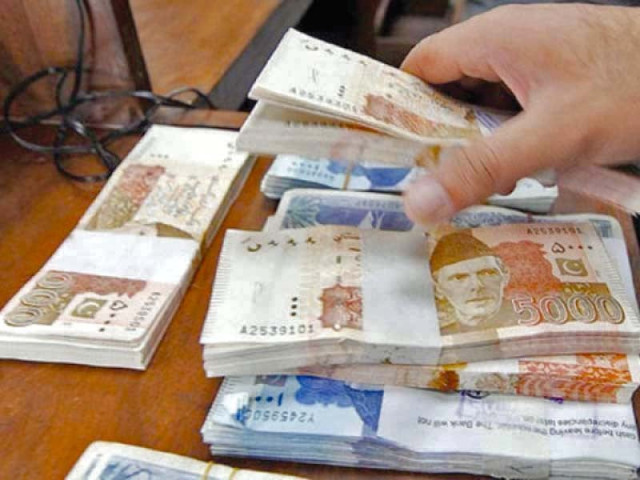Banks lent 83% deposits to govt in Feb
Deposits rose by 15% in one year to Rs22.9tr mainly due to workers’ remittances

The State Bank of Pakistan (SBP), on Monday, reported that bank deposits grew 15% in one-year to Rs22.92 trillion in February, compared to Rs19.91 trillion in the same month of last year.
The financial institutions utilised a large portion of the deposits in lending to the government, causing a sluggish growth in credit to the private sector amid an economic slowdown.
Arif Habib Limited (AHL) Economist Sana Tawfik was quoted as saying, “Financial experts said the growth in deposit has been recorded mainly due to notable inflows of workers’ remittances, a jump in government borrowing, as well as a considerable slowdown in economic activities. Each of these factors led to the corporate sector depositing their funds instead of investing them in projects in wait for a return to normalcy.”
Pakistan has received $18 billion (over Rs5 trillion at an exchange rate of Rs280/$) in workers’ remittances in the first eight months (Jul-Feb) of the current fiscal year 2023.
Foreign inflows are normally received in Pakistani rupees by family members expatriates, who utilise the funds to mostly meet day-to-day expenses, leave in banks, or invest in different assets; mostly real estate.
Economist Shahid Hasan Siddiqui said the government has continued to borrow heavily from commercial banks.
“Massive government borrowing has multiplied money growth in the system and caused a jump in deposits at banks,” said an analyst.
The economic slowdown has forced the corporate sector to put new investment projects on hold, in wait for the return of stability in economic activities. Banks, however, have mostly utilised the deposits in safe lending to the government, instead of extending deposits to the private sector to support business activities in the country.
The government is borrowing funds to finance mostly non-development projects, and to fulfil its budgeted expenditures like paying interest money or to finance monthly pay and pension.
On the contrary, lending to the private sector always pays back to the society, as the sector utilises the funds to set up new projects and creates job opportunities.
Bankers themselves have criticised the imbalanced institutional lending, urging financial institutions to play their due role in growing the economy.
Banks’ lending to the government (through investment in T-bills and Pakistan Investment Bonds (PIBs)) has spiked 31% in the last one-year, to almost Rs19 trillion in February, compared to Rs14.54 trillion in the same month of the last year.
Accordingly, banks have cumulatively lent almost 83% of the total deposits to the government as in February 2023, meaning banks’ investment to deposit ratio (IDA) stands at 83%.
On the contrary, banks’ have advanced 51% of the total deposits to the private sector; meaning the advance to deposit ratio (ADR) stands at 51% as in February 2023.
Central bank data suggests the investment to deposit ratio (IDA) grew by a notable 10% in the past one year till February 28, 2023. On the contrary, ADR improved just 1% in the past year until February 2023.
Financial experts said bankers have asked financial institutions to increase lending to the private sector, including the small and medium-sized enterprise (SMEs) sector, to help the economy grow.
Rupee stabilises
The volatile Pakistani rupee is stabilising at around Rs280 against the US dollar in the interbank market, as it has continued to move around the level for the past few days.
It dropped 0.30%, or Rs0.84, to close at Rs281.61 against the greenback on Monday, according to the central bank, recovering by 0.54% to close at Rs280.77/$ on Friday.
The latest depreciation in the rupee, however, is seen amid reports about a few days delay in the revival of the International Monetary Fund (IMF) loan programme for Pakistan.
Published in The Express Tribune, March 14th, 2023.
Like Business on Facebook, follow @TribuneBiz on Twitter to stay informed and join in the conversation.



















COMMENTS
Comments are moderated and generally will be posted if they are on-topic and not abusive.
For more information, please see our Comments FAQ